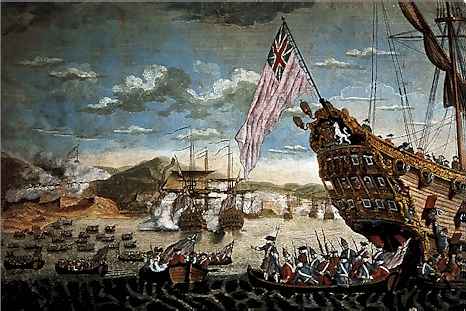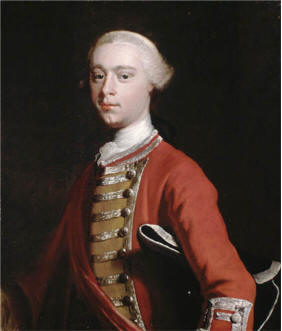
The French forces, combine
d with many of the Native American forces, devastated the English "lobsters". However, Britain has always been able to bring forth an outstanding leader to politics to lead them through hard times. And in this situation, the British brought forth the great orator and politician, William Pitt, faster than law enforcement bringing riot police to a soccer game.
After being elected to office, Pitt, after realizing that France's vitals in North America were in Canada, made his troops leave the French West Indies, which were slowly weakening British military strength, faster than a cheetah leaving a salad bar.

The first French establishment to be laid to waste was the fortress of Louisbourg. Even though the fortress had been fortified more than Fort Knox's fallout shelter (a complete exaggeration), the Siege of Louisbourg brought it down to its knees. This was the first major British victory in the whole war.

 The British, making progress after Louisbourg more slowly than a sloth in a sack-race, could not seem to make their way into Quebec. However, when Wolfe arrived, he executed a daring move, sending a detachment up the side of an unguarded cliff, showing the way for other troops, to get to the outskirts of the city.
The British, making progress after Louisbourg more slowly than a sloth in a sack-race, could not seem to make their way into Quebec. However, when Wolfe arrived, he executed a daring move, sending a detachment up the side of an unguarded cliff, showing the way for other troops, to get to the outskirts of the city.On that morning, the two armies faced off on the Plains of Abraham in the Battle of Quebec. The British were led by James Wolfe while the French were led by Marquis de Montcalm. Ironically, the two commanders were both fatally wounded in the battle. However, the British defeated the French and the city surrendered.

The Treaty of Paris finally put an end to the French and Indian War. Through this agreement, the British took what was left of Canada, leaving behind a French population smaller than an amoeba with dwarfism. The Indians also lost their biggest weapon through this treaty, the ability to make Europeans fight each other for their gain or amusement.

No comments:
Post a Comment